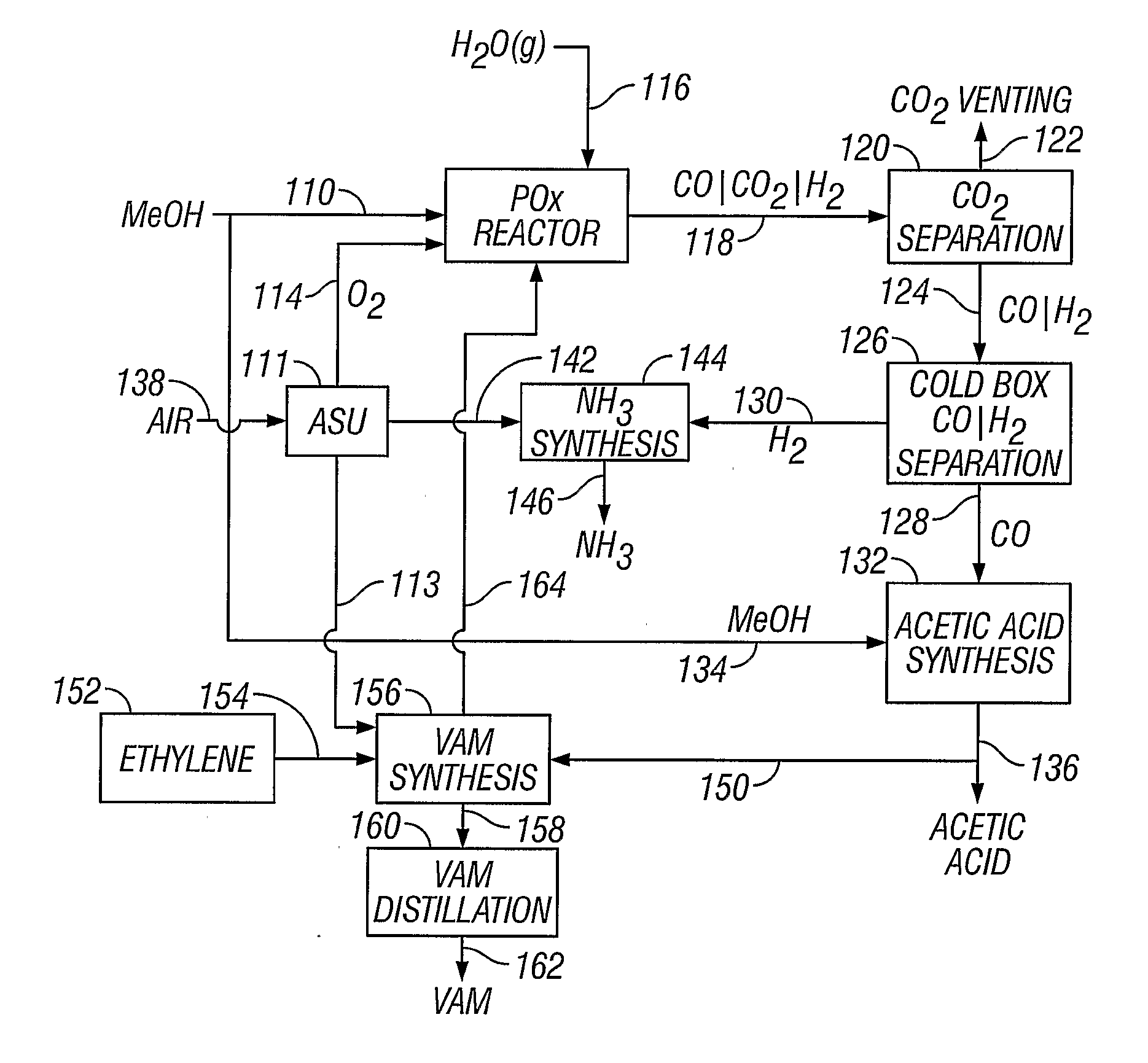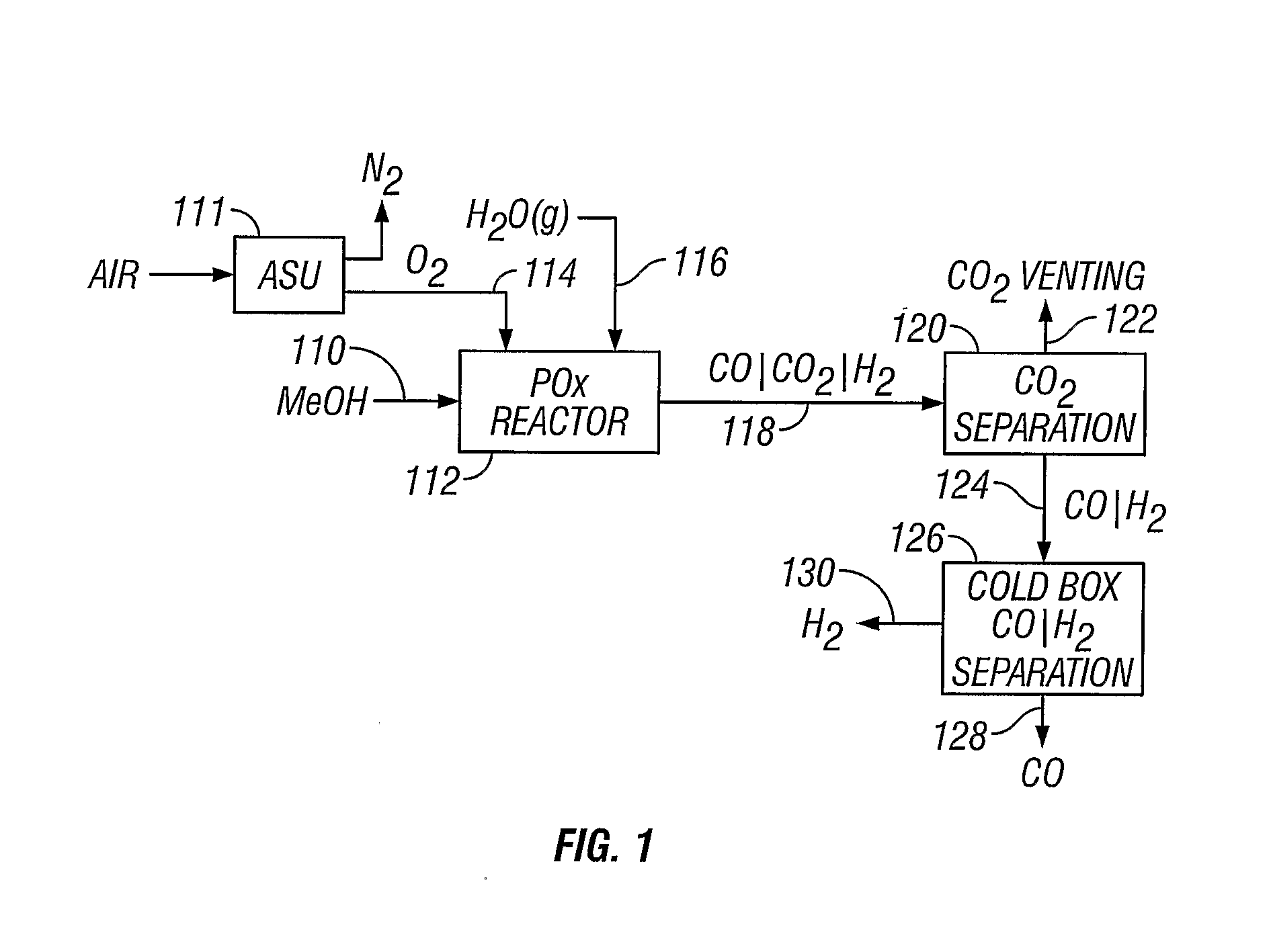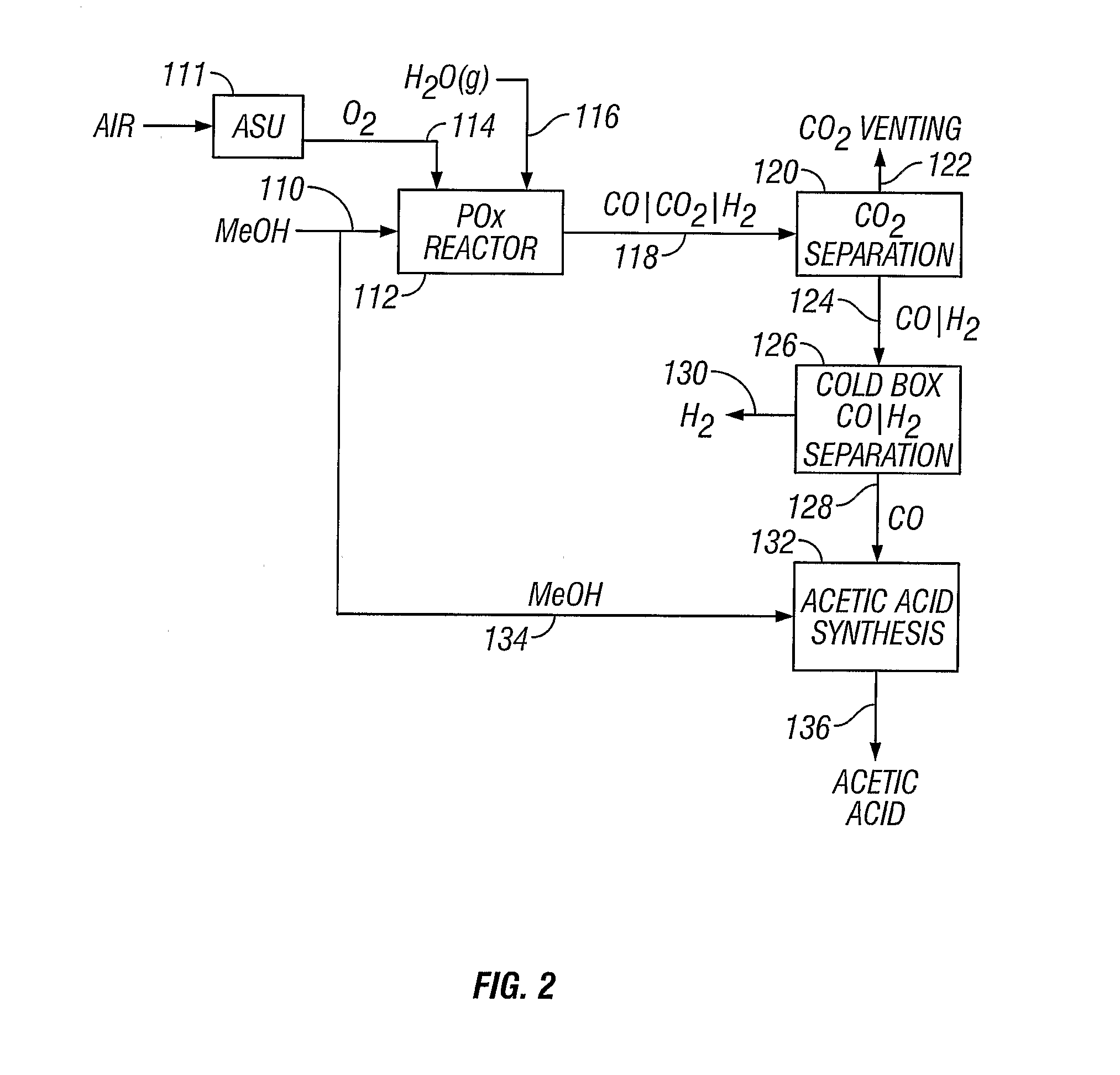Preparation of Syngas for Acetic Acid Synthesis By Partial Oxidation of Methanol Feedstock
a technology of methanol feedstock and methanol oxidation, which is applied in the direction of liquefaction, separation processes, lighting and heating apparatus, etc., can solve the problems of high cost, relatively high natural gas price, and low methanol price, and achieve low cost of methanol feedstock
- Summary
- Abstract
- Description
- Claims
- Application Information
AI Technical Summary
Benefits of technology
Problems solved by technology
Method used
Image
Examples
example 1
[0052] A methanol feedstock stream is supplied to a partial oxidation reactor for the recovery of hydrogen and carbon monoxide. The methanol stream is supplied at a rate of 1438 kmoles / hour, where it is combined with 719 kmoles / hour of oxygen and 884 kmoles / hour of steam. The partial oxidation reactor is operated at approximately 1300° C. (2372° F.) and 4 MPa, producing a syngas effluent stream. Carbon dioxide can be removed from the syngas stream, producing a carbon dioxide-rich stream and a carbon dioxide-lean stream of carbon monoxide and hydrogen. The carbon dioxide-rich stream can be vented or collected. The carbon dioxide-lean stream can be supplied to a cold box where the component hydrogen and carbon monoxide are separated, yielding 1045 kmoles / hour of carbon monoxide and 1812 kmoles / hour of hydrogen.
example 2
[0053] A methanol feedstock stream is fed to a partial oxidation reactor for recovery of hydrogen and carbon monoxide. The methanol stream is supplied at a rate of 1438 kmoles / hour, where it is combined with 719 kmoles / hour of oxygen, 350 kmoles / hour of steam, and 296 kmoles / hour of carbon dioxide recycled from the reactor effluent. The partial oxidation reactor operates at approximately 1400° C. (2552° F.) and 4 MPa, producing a syngas effluent stream. Carbon dioxide is removed from the syngas stream by known means, producing a carbon dioxide-rich stream and a carbon dioxide-lean stream of carbon monoxide and hydrogen. The carbon dioxide-rich stream is recycled to the partial oxidation reactor at a rate of 296 kmoles / hour. The carbon dioxide-lean stream is supplied to a cold box where the components are separated, yielding 1045 kmoles / hour of carbon monoxide and 1812 kmoles / hour of hydrogen.
example 3
[0054] The production of acetic acid from a plant having the operating conditions of Example 1. A stoichiometric amount of methanol (1045 kmoles / hour) is added to the carbon monoxide-rich stream (1045 kmoles / hour) in an acetic acid synthesis unit to produce approximately 1045 kmoles / hour of acetic acid.
PUM
| Property | Measurement | Unit |
|---|---|---|
| Temperature | aaaaa | aaaaa |
| Temperature | aaaaa | aaaaa |
| Temperature | aaaaa | aaaaa |
Abstract
Description
Claims
Application Information
 Login to View More
Login to View More - R&D
- Intellectual Property
- Life Sciences
- Materials
- Tech Scout
- Unparalleled Data Quality
- Higher Quality Content
- 60% Fewer Hallucinations
Browse by: Latest US Patents, China's latest patents, Technical Efficacy Thesaurus, Application Domain, Technology Topic, Popular Technical Reports.
© 2025 PatSnap. All rights reserved.Legal|Privacy policy|Modern Slavery Act Transparency Statement|Sitemap|About US| Contact US: help@patsnap.com



